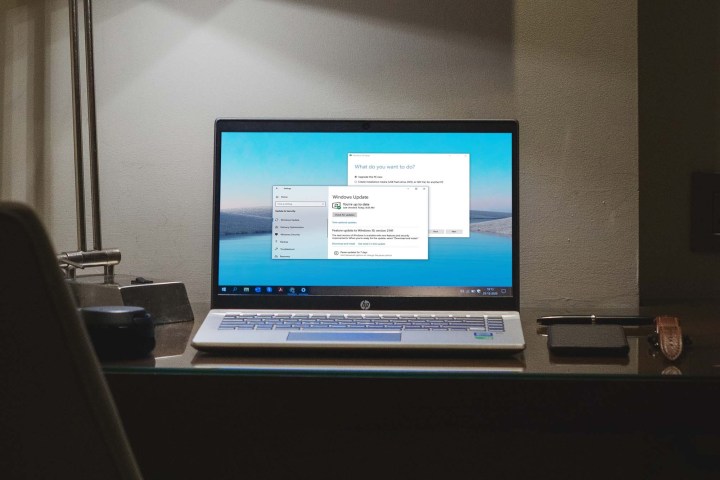Microsoft updated the minimum Windows 11 system requirements last week, adding support for more CPUs and updating its PC Health Check app for Windows Insiders. At that time, Microsoft also shared with press that users who didn’t meet the minimum requirements would be able to install Windows 11 manually. Now, Microsoft has clarified that these “unsupported” users won’t receive Windows updates.
In a response to a question from PCWorld, Microsoft clarified that unsupported PCs won’t receive any updates through Windows Update. That includes the core operating system updates for features, as well as any security or driver updates. Users are free to download and install Windows 11 through the Media Creation Tool, but it’s a risky proposition given how little support Microsoft is giving to this route.

Originally, it seemed it would offer users a way to use Windows 11 without a TPM 2.0 chip. This microprocessor serves as a vault on your motherboard and is useful for services like Windows Hello and Bitlocker. Without Windows Update, however, installing Windows 11 on an unsupported PC makes it even less secure than not using a TPM chip.
In order to run Windows 11, Microsoft only requires a 64-bit dual-core processor, 4GB of RAM, and 64GB of storage. However, the list of supported CPUs only goes back a few generations, locking out most 7th-gen Intel Core processors and all first-gen AMD Ryzen processors. The official requirements also call for TPM 2.0, barring users with TPM 1.2 or no TPM at all.
This brings into question Microsoft’s security initiative with Windows 11. The company has presented Windows 11 as the most secure Windows version ever, and it is — given that you have supported hardware. Users who built their own PC with unsupported parts aren’t able to take advantage of that.
It’s worth noting that TPM is only part of the security features that Windows 11 offers. By locking unsupported users out of Windows Update, the OS is considerably less secure. As the recent PrintNightmare fiasco has shown, Windows Update is critical for fixing security bugs that put user’s hardware at risk.
Without it, DIY builders with old machines are worse off than using Windows 11 without a TPM. Microsoft has clarified that this is only a temporary solution, so we don’t expect most users to install Windows 11 through the Media Creation Tool. At this point, we recommend sticking with Windows 10 if you have an unsupported PC.
Currently, users with unsupported hardware can still download Windows 11 through the Insider program. There’s also a method to create a “hybrid installer” to use Windows 11 on unsupported PCs. Both of these routes will still lock you out of Windows Update, so we wouldn’t recommend them for long-term use.
The official release of Windows 11 is coming soon. Microsoft hasn’t announced a time frame yet, but rumors suggest the OS will start rolling out in October. The company has adjusted its minimum specs once now, but we’ll have to wait to see if it does so again before launch.



